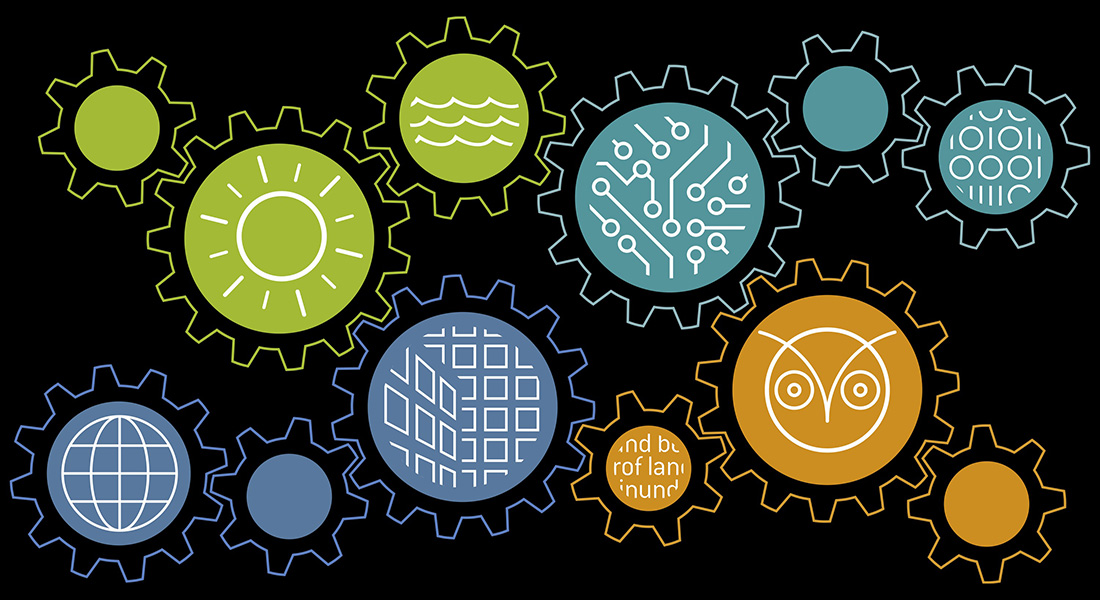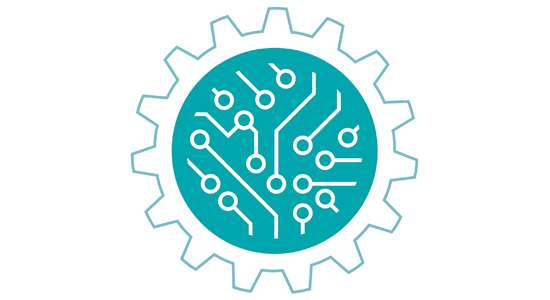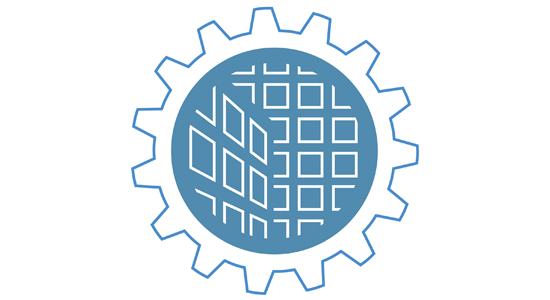Copenhagen Center for Social Data Science (SODAS) - continued development
Digitalisation of degree programmes

The Faculty of Social Sciences (SOCIAL SCIENCE) is a successful academic community based on strong disciplines and organised into five departments. The faculty’s high academic standards mean that its graduates are among the architects of the Danish welfare state and that the knowledge generated by the faculty plays a key role in debates on the future of the welfare state. Places on the faculty’s degree programmes are highly coveted, and its graduates are in demand in both the private and public sectors.
Within the framework of the overall UCPH strategy, the Faculty of Social Sciences’ strategic target is to provide interdisciplinary responses to major societal issues in a changing world. It does so by establishing a coherent and unique research and teaching environment based on collaboration with actors from all parts of Danish society and contributing to the development of unique research and teaching at UCPH.
A pluralistic environment that poses big, difficult and relevant questions is a prerequisite for unique research and teaching. The best way to promote pluralism and collaboration is for the faculty to engage students and academic staff at all levels in dialogue that ensures diversity and safe and secure working conditions. This dialogue also promotes respect for different research methods and a range of publication and knowledge traditions.
Technical and administrative staff will have the opportunity to develop their skills across departments and the faculty, including in environments that combine operational and development tasks. Work will be allocated between units and levels in an effective and relevant manner.
Coherence within the faculty is a prerequisite for SOCIAL SCIENCE’s ability to contribute to the development of a unified and focused university. More ambitious shared targets require that all staff groups and students contribute to dialogue in the faculty. In a complex organisation, one of the key management tasks is to facilitate the kind of conversations that play a crucial role in strengthening and developing shared values and setting collective targets.
The SOCIAL SCIENCE strategy, with its associated target and action plans, does not seek to describe the faculty’s overall activities and day-to-day operations, but to concentrate on strategic focus areas.
The faculty has four strategic focus areas in the period leading up to 2024:
Copenhagen Center for Social Data Science (SODAS) - continued development
Digitalisation of degree programmes

SAMF Digital (SOCIAL SCIENCE Digital): Strengthening and developing the interdisciplinary research and teaching environment within social data science by consolidating the research environment at SODAS and setting up programmes in both Social Data Science and Computer Science-Economics; developing and implementing a digitisation strategy for all degree programmes, including improving the range of courses and increasing the amount of external research funding.
Impact capacity
Centre of Public Policy

SAMF Public (SOCIAL SCIENCE Public): Engaging staff and stakeholders in specific collaborations for the purpose of solving societal problems. This initiative involves setting up an interdisciplinary public policy and innovation centre. Through research, education and impact work, the centre will address the challenges facing private- and public-sector actors in a world in which technological and demographic development, climate change, and shifting global power structures create new societal conditions.
Reform of programme management and study administration services
Interdisciplinary patterns of study

SAMF Læring (SOCIAL SCIENCE Learning): Ensure pluralism, interdisciplinarity and collaboration in teaching, based on a new form of dynamic co-operation between academic environments on the development and provision of degree programmes by the faculty. Reform of programme management and study administration services will enable SOCIAL SCIENCE to improve opportunities for students to combine academic skills, and to develop new products within continuing and further education. The faculty will also be an active and proactive partner, both at UCPH and in relation to external stakeholders, partly to ensure a greater practical element in the degree programmes.
Climate and sustainability committee
Green Innovation Prize
Interdisciplinary climate courses, including continuing and professional education

SAMF Klima (SOCIAL SCIENCE Climate): SOCIAL SCIENCE will launch a climate initiative that strengthens and develops the programmes’ orientation towards interdisciplinary competencies aimed at solving specific societal problems within the areas of climate and sustainability. The initiative will also promote a green study environment and develop the faculty’s sustainability profile as part of a participatory collaboration between students, staff and the administration.
These four interdisciplinary targets at faculty level will be supported and complemented by department-level targets, as described in the departments’ target plans. This means that the majority of the current activities at SOCIAL SCIENCE, in the form of outstanding research, education and public outreach, will continue to be the top priority. These activities must be given as much support as possible, even if this is not explicitly mentioned in the strategy. This document's focus is therefore on new initiatives at faculty level.
SOCIAL SCIENCE’s key targets within UCPH’s four main focus areas in Strategy 2023 are as follows:
The 2016 research assessment emphasised that a high degree of internationalisation, ambitious publication strategies and success in relation to external funding are key factors for the departments’ success. Specifically, the evaluation recommended a closer focus on career paths and development, greater internationalisation and a clearer research profile. It also identified a need to work in a more structured manner with applications for external research funding, enhanced interdisciplinary research, closer collaboration with the rest of society and clearer organisation of research in some of the departments.
Based on the research assessment, the departments have been working toward a number of specific targets for consolidating positions of strength and developing the research and teaching environments. We consider these initiatives to be part of the ongoing quality assurance, which is a key element of professional research management.
A number of initiatives at UCPH level contribute to strengthening SOCIAL SCIENCE’s talent development and recruitment, including specifying the promotion requirements and content descriptions for various job categories and career paths. SOCIAL SCIENCE will have a particular focus on career development at all levels, including:
A new research assessment will be carried out in 2021/2022. SOCIAL SCIENCE will also participate in the UCPH-wide PhD evaluation in 2019/20.
By setting up the interdisciplinary research centre SODAS, SOCIAL SCIENCE has established a leading research environment in social data science. All of the departments have also, to varying degrees, established research groups that span both data science and their own specific area of expertise. During the strategy period, a number of initiatives will enhance research and research collaboration, both in the departments and in SODAS, including:
In recent years, SOCIAL SCIENCE has significantly increased the number of external research grants. The ambition for the next few years is to strengthen the frameworks and foundations for attracting external funding, e.g. by:
Based on strong subject disciplines and through problem-oriented teaching focusing on pluralism, interdisciplinary knowledge and collaboration, SOCIAL SCIENCE seeks to produce competent and critical graduates. The faculty’s courses are developed in close dialogue with private- and public-sector employers. The teaching is planned and provided on the basis of the individual student’s needs. SOCIAL SCIENCE’s overarching targets are to:
These targets translate into a number of specific initiatives, as described below.
As a starting point for the realisation of the digital transformation in SOCIAL SCIENCE during the strategy period, we will formulate a digitisation action plan. In regard to teaching, this will ensure:
In some of the faculty’s subject areas, the biggest challenge is to link the programmes more closely with practice, with a view toward improving employment opportunities for graduates. In other subjects, there is a greater need for opportunities to develop and strengthen links to research.
In addition to participating in joint initiatives at UCPH level, during the strategy period SOCIAL SCIENCE will have a particular focus on:
The focus will be on:
Based on a new dynamic co-operation between academic areas on the development and running of degree programmes, SOCIAL SCIENCE will focus on supplementing and enhancing the range of degree programmes it provides. The faculty will also be an active and proactive partner, both at UCPH and in relation to external stakeholders, partly to ensure a greater practical element in the degree programmes.
SOCIAL SCIENCE will build networks with external stakeholders and clients in order to draw on their experience and target our initiatives in areas in which there is proven demand for our services and where the faculty has specialist competencies.
Positive learning outcomes require a good study environment. SOCIAL SCIENCE will therefore:
SOCIAL SCIENCE has efficient programme management and study administration services but we face challenges such as the heavy workload of heads of studies/study board chairs, vulnerable study administrations in the departments, and the lack of capacity to undertake special strategic work. SOCIAL SCIENCE will therefore initiate analysis that will form the basis for the reorganisation of the study administration service area, including:
SOCIAL SCIENCE wishes to be considered a natural partner for everybody working to tackle the big, difficult and topical questions facing society. The faculty will therefore contribute to the University’s interdisciplinary initiatives in this area, and also mobilise researchers across disciplines to work with private and public-sector stakeholders on analysing and solving societal problems.
SOCIAL SCIENCE’s researchers often work on a broad range of problems related to national and global societal challenges. They work across subject disciplines and with a number of different partners. One of the faculty’s strengths is that social commitment is a natural part of so many of our employees’ daily lives. During the strategy period, we will supplement existing initiatives with faculty efforts to target the implementation of this commitment. Two initiatives in particular will be key:
In order to promote the University’s target of increasing the social impact of its research and education, and to strengthen co-operation between different academic environments, SOCIAL SCIENCE will – preferably in co-operation with other faculties – establish an interdisciplinary research and education initiative within public policy.
The new centre will use research, education and impact work to address the challenges facing private and public stakeholders in a world in which technological and demographic development, climate change and shifting global power structures create new societal conditions.
The centre will also work closely with public-sector agencies and private companies to formulate specific solutions and tailor-made programmes and courses that will address major societal problems.
The climate is a major topical issue that mobilises our students and staff, who are committed to building a better and more sustainable society. The climate agenda is a key issue for anyone who wants to understand and change society at national, European and global level. As the climate becomes a key political topic, in line with (or in contrast to) growth, security, democracy, equality, etc., researchers and students must identify the economic, psychological, political, social and cultural logics under which the climate agenda operates. They must also be able to critically relate to the way in which the climate issue is managed politically, as well as the societal consequences of dealing with the crisis.
Navigating the climate agenda will be a key competence for many of our students in their future professional careers. The climate and sustainability are therefore key questions, among others, to which social science students must relate. These issues open up good opportunities for interdisciplinarity, e.g. collaboration with the natural sciences. At the same time, however, the theme also raises classic social science questions.
In other words, the faculty will build on its commitment to the climate and sustainability in the development of its research and teaching. In this context, it is important to bear in mind that SOCIAL SCIENCE is a university faculty, and as such is rooted in critical thinking. This also applies to its activities in the climate area. It should also be noted that the University is responsible for a range of issues relating to travel, buildings, etc. and the faculty is, therefore, unable to take independent initiatives in relation to these topics.
During the strategy period, SOCIAL SCIENCE will launch a series of tangible initiatives on climate and sustainability, including:
A good working environment is a crucial factor for achieving the faculty’s overall research and education targets. Improving the working environment in all units is therefore a high priority. Another clear target is that all students experience a diverse, inclusive and challenging study environment (as touched upon above). SOCIAL SCIENCE also aims to optimise the interaction between technical and administrative staff and academic staff, both between the departments and among the relevant (service-)units at faculty level, including the Faculty Library and the Teaching and Learning Unit, as well as at University level (UCPH IT, HR South City, etc.).
In addition to planned joint initiatives, several departments at SOCIAL SCIENCE work with specific initiatives related to the targets and action plans. For example, the Department of Psychology has adopted a supportive management approach, based on its own research into stress and the working environment.
At faculty level, SOCIAL SCIENCE will:
SOCIAL SCIENCE’s targets and action plan were originally formulated in 2018, as a result of the following process:
At department level, a similar process took place involving staff meetings and local forums, i.e. local collaboration committees and study boards.
After the meeting with the rectorate on 9 May 2018, and following feedback from it, a revised version of the faculty’s target plan and an associated action plan were drawn up for the period up to and including 2019. (This document)
These revised documents were submitted for consultation to the departments and discussed by the Faculty Management Team. They were also discussed by the Faculty Collaboration Committee and the Academic Council on 20 September 2018. Feedback regarding matters such as the frequency of meetings were submitted in advance of the meeting with the rectorate on 2 October 2018 so that committees were able to provide input.
In parallel with the revision process at faculty level, the departments have adjusted their own targets and action plans, based on input from department management received following the meetings in week 15 and on ongoing local dialogue.
The target plan was revised following the change of dean in May 2019. The revised strategy was discussed by the Faculty Management Team on several occasions, including at a seminar on 2–3 September 2019, at an extended management meeting on 13 September 2019, by the Faculty Collaboration Committee on 19 September and by the Academic Council on 27 September. Finally, the revised target plan formed the basis for local dialogue when the dean attended department meetings in autumn 2019.
Talent and collaboration – Strategy 2023
The University of Copenhagen's new strategy Talent and collaboration applies from 2018. The strategy identifies four special focus areas for the University's development until 2023.
Read the strategy here.
Target plan 2020-2023 (pdf)
Action plan 2020 (pdf)
The departments can supplement the University of Copenhagen's and the Faculty's respective strategies with department strategies.